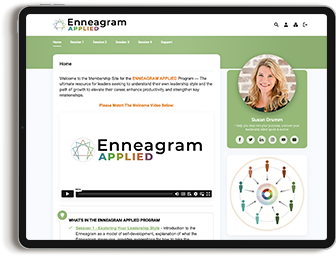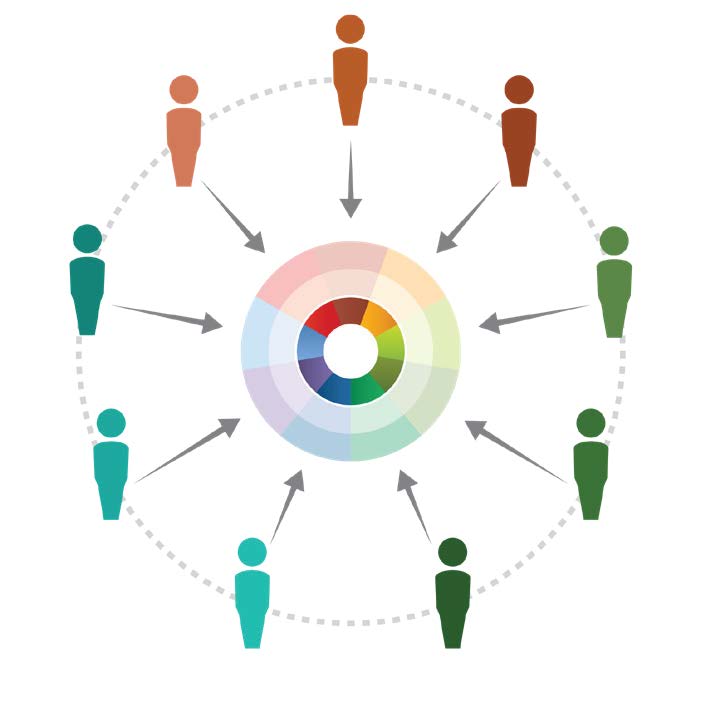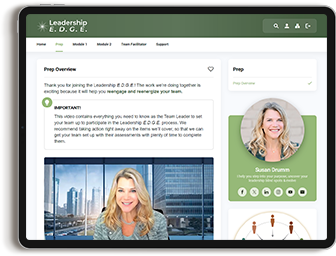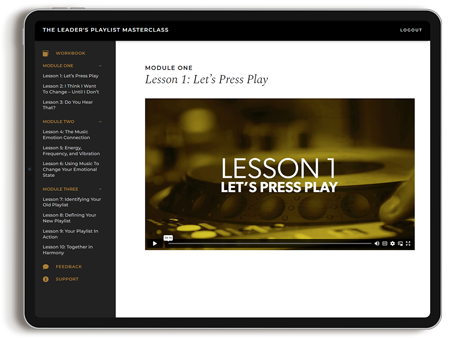Bridging the Generational Divide at Work (feat. Chris Tuff)
The generational divide at work impacts team connection.
Nothing exposes this truth like the generational divide at work that we see between Gen Xers, Millennials, and Gen Zers in the workplace. Gen Zers roll their eyes in frustration with their older colleagues and Millennials and Gen Xers disappointedly shake their heads at the emerging workforce.
Challenging as it might be, leaders who cultivate genuine connections across generational lines experience greater workplace success.
Chris Tuff, the bestselling author of “The Millennial Whisperer” and “Save Your Asks,” has made connection-building his life’s mission. His self-described obsession with connection began in 2006 as he helped build the early infrastructure and advertising products with Facebook. Chris has worked with some of the most prestigious companies in the world, such as Nike, Meta, and Amazon, and his first book is a USA Today bestseller that equips leaders with tools to attract and retain young talent through genuine connection.
In this episode, Chris shares 4 insights leaders can consider in order to foster connection on a multi-generational team in order to bridge the generational divide at work and achieve business objectives.
1. Consider the Bigger Picture
Each generation adopts specific preferences and behaviors, which often results in negativity from other generations. Understanding the context for these generational differences reduces the stigma around them. According to Chris, two main factors make Millennials and Gen Zers unique: the adoption of technology and changes in parenting styles.
- Technology adoption significantly shaped the younger generations. Those born after 1984 grew up with smartphones and social media platforms influencing their communication styles and expectations. Social media in particular has created a “grass is always greener on the other side” belief system in Gen Zers.
- Parenting styles shifted from an authoritarian approach to a more relaxed, permissive style. As a result, young employees entering the workforce expect their bosses to be mentors who value authenticity and connection. Instead, they’re often met with a more authoritarian approach.
Leaders who understand these larger contexts are less likely to view these differences as personal flaws that must be changed. What may be perceived as disrespect or lackadaisical workplace behavior from the Millennial or Gen Zer, could instead be understood as a value for connection and authenticity. Shifting this perspective opens a leader’s mind to view challenges as opportunities.
Similarly, explaining to younger workers the why behind certain policies and procedures can reduce opposition from a generation that may view these as “old school” and in need of updating. Both parties will experience greater harmony if they’re not constantly dismissing different perspectives or ways of doing things. When each generation gives and receives respect, they are more likely to find ways to work together.
2. The 70-30 Rule
Chris suggests that leaders could help younger generations understand the 70-30 rule. That is, in any job or role, 70% of the tasks should be inspiring and fuelling, while the remaining 30% will be less enjoyable but necessary. In other words, no job is 100% awesome all the time, and yet many young workers have unrealistic expectations otherwise. Chris believes individuals and leaders should identify their “zone of awesomeness” within their roles along with what might be in their zone of “suck.”
As mentioned above, many Gen Zers have adopted a “grass is greener” mentality. When things are hard, they may be more prone to leave a situation in pursuit of a more appealing one, rather than cultivating resilience and finding solutions. Just as Gen Zers benefit from improving their resilience, Millennials and Gen Xers enhance their work experience by connecting with excitement and passion. The 70-30 rule encourages Gen Zers to contextualize the mundane elements of work while giving Millennials permission to delegate or minimize the 30% to enhance their overall job satisfaction.
Here’s how you can introduce this rule on your team:
- Explicitly define the 70-30 rule. Get everyone on the same page by framing this principle as an expectation. This gives employees a framework for realistically understanding and discussing their work experience.
- Give your team time to evaluate their experience. Allocate an afternoon for your team to reflect on their role, and what percentage feels life-giving compared to soul-sucking to them.
- Connect with each individual. Schedule an individual follow-up meeting to learn what parts of each person’s role feel energizing versus depleting. The feedback may surprise you. This doesn’t mean you need to change some roles right away. Instead, think of this as an opportunity to continue the conversation. Perhaps aligning future tasks with greater strategy and intentionality could be an option, or reframing the purpose of the 30% “suck” in being able to perform at a higher level when promoted (think “Wax on, Wax Off” concept in The Karate Kid). Or framing the difficult parts of the job as a moment in time.
3. Create Organizational Points of Connection
Building a team that prioritizes genuine connection might require some organizational shifts. The more connected individuals feel in their roles, the more enthusiastic they will be to connect with each other. Chris recommends these changes for leaders who are serious about improving the connection with their whole team:
- Allow people to make lateral moves within the company. By encouraging internal exploration, you improve retention while finding roles that your employees are actually passionate about.
- Set expectations during your employee’s first week on the job. Explain what growth opportunities look like, what’s next on the job ladder, and what competencies would need to be present to be promoted into the next role. Be clear on timelines and metrics that must be met. This maintains motivation and inspires loyalty.
- Focus on becoming an inspirational leader. The number one leadership trait Gen Zers and Millennials are looking for out of leaders is inspirational leadership. The most effective way to inspire your team is to energize and engage them. You can do this by incorporating a fresh team-building exercise each month or celebrating successes more intentionally. Some leaders display inspirational leadership by describing with enthusiasm a compelling future for the company and its customers.
4. Help Others Connect With Themselves & Their Work
According to Chris, 11% of people are in a job that actually matches their personality profile. And according to Bloomberg, 25% are in jobs that are deemed acceptable for their personality profile. Let’s face it, we have the wrong people doing the wrong work for the wrong reasons. A leader wanting to improve connection on their team prioritizes personal exploration.
Here are 3 reasons to invest in personal assessments like the Enneagram for yourself and your team:
- Understand Motivations – Explore tools like the Enneagram to gain a deeper understanding of your team members’ personalities and motivations. This knowledge can help you tailor your leadership approach and create a more harmonious and connected workplace.
- Uncover Blind Spots – Every individual and every generation has a blind spot. Personal assessments can make the discussion around blind spots feel less personal or unfounded. Use their results to find natural ways to fill gaps on your team.
- Support Each Other in Growth and Development – The Enneagram and other assessments expose our strengths and reveal a more direct pathway to fulfillment. These details are an effective resource for leaders looking to help their employees connect more deeply with themselves, their work, and their teammates.
As a leader in a diverse workforce, understanding and engaging the obvious differences can improve genuine connections on your team. Each generation has a strength to offer and a blindspot to address, and we all have the power to bridge this generational divide.
Chris also shares…
- How to redefine success intergenerationally
- How hitting rock bottom revealed the importance of connection
- How to create a lasting impact for future generations
If you liked this episode, you may also benefit from hearing:
- Christopher Michel on building team trust
- Dane Espegard on finding joy in and outside of work
- John Ruhlin’s secret to employee retention




